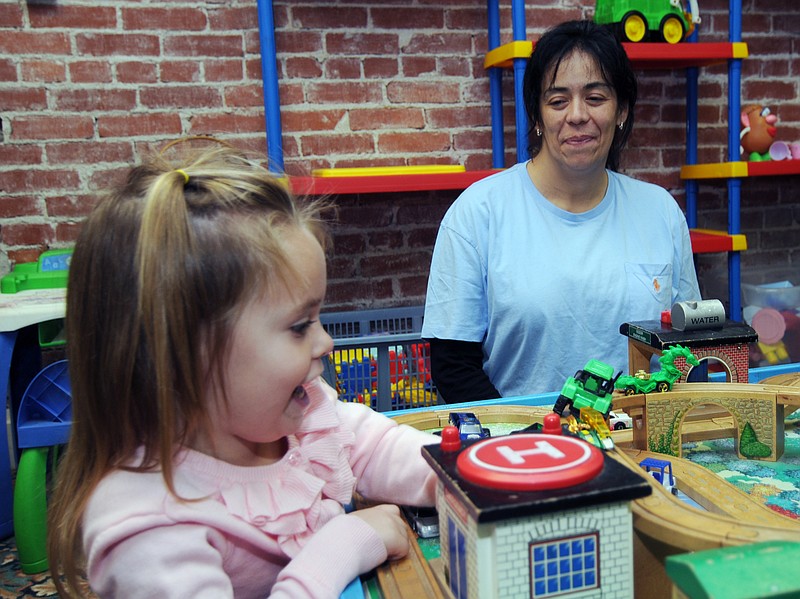JOPLIN, Mo. (AP) - When the deadly Joplin tornado destroyed her father's home, Alisha Courtney had no place to turn. So she went back to live with her abusive boyfriend, just weeks after fleeing his regular beatings. Now she's reaped the consequences: she's lost custody of her 3-year-old daughter after police raided his home and allegedly found a methamphetamine lab.
"That's the only place I could go," said Courtney, 41. "It was the hardest thing in the world. And it cost me my daughter," who is now in foster care.
Nearly seven months after the May 22 tornado that claimed 161 lives, women and social service workers are dealing with what happens when a city loses thousands of buildings, including entire neighborhoods and much of its low-cost housing. Abused spouses and family members often have nowhere to go when it's time to move out.
Lawyers and victims' advocates in Joplin are reporting surging caseloads of women looking for options. Lafayette House, a shelter where Courtney is now staying, finds itself full all the time even after increasing its beds by 25 percent after the tornado. In mid-June, 59 women were staying at the shelter, more than double the number before the tornado. Legal Aid of Western Missouri reports a 40 percent increase in its domestic violence cases the past seven months compared to this time last year.
Women staying at a shelter would normally find their own place or move in with relatives after a few weeks. However, "We have women who are ready to leave staying way longer," said Louise Secker, community services director at Lafayette House. Some, like Courtney, are winding up back in the troubled situation they left.
Family violence tends to increase in cities after a crisis. Now, as the holiday season approaches with its added stress, Joplin mental health workers fear another spike in abuse cases.
City officials estimate a current shortage of 1,400 rental units, with nearly half of those classified as affordable housing. The tornado spared much of suburban Joplin but wiped out some older neighborhoods. As much as 70 percent of the losses in some of the most heavily damaged areas were apartments and rental houses. Normally, they would be available for people seeking new places to stay.
The nature of domestic violence - an underreported crime where victims and their assailants have numerous legal and emotional ties - makes collecting definitive statistics difficult, said Jamie Rodriguez, a Legal Aid of Western Missouri lawyer dispatched to Joplin by Equal Justice Works, a national nonprofit. But her observations and those of other social service workers suggest the pent-up trauma among Joplin tornado survivors is considerable.
"It seems like the level of violence has escalated," said Karen Scott, a sexual assault nurse examiner at Freeman Health System. "We're seeing more serious injuries. More fractures, rather than someone who gets slapped, or punched, for example."
Similar increases were seen in Gulf Coast cities after Hurricane Katrina. A 2009 study by the American Medical Association found women living in temporary trailer parks set up in Mississippi were three times more likely to become victims of domestic or sexual violence than before the storm.
In New Orleans, women's shelters operated by the Catholic church saw an estimated 20 percent increase for several years after the 2005 hurricane, said Mary Claire Landry, director of the Archdiocese of New Orleans' domestic violence and sexual assault services.
One resident of Lafayette House in Joplin said her boyfriend exploited her lack of housing alternatives after the tornado. The 45-year-old woman, who asked that her name not be used because she fears repercussions from her boyfriend, has an 8-inch scar on her partially shaved head after needing surgery to reduce swelling in her brain from a recent domestic attack.
She said that when she got in a fight with her boyfriend before the tornado, she would stay with her daughter. But then her daughter lost her home and her car.
"He knows I can't afford to go anywhere, and that my car is broken down," she said. "It's something he holds over my head. It's leverage. To keep me coming back."
In addition to the physical devastation, the tornado weakened many residents' support systems. Church congregations were scattered, neighbors displaced, family members relocated.

